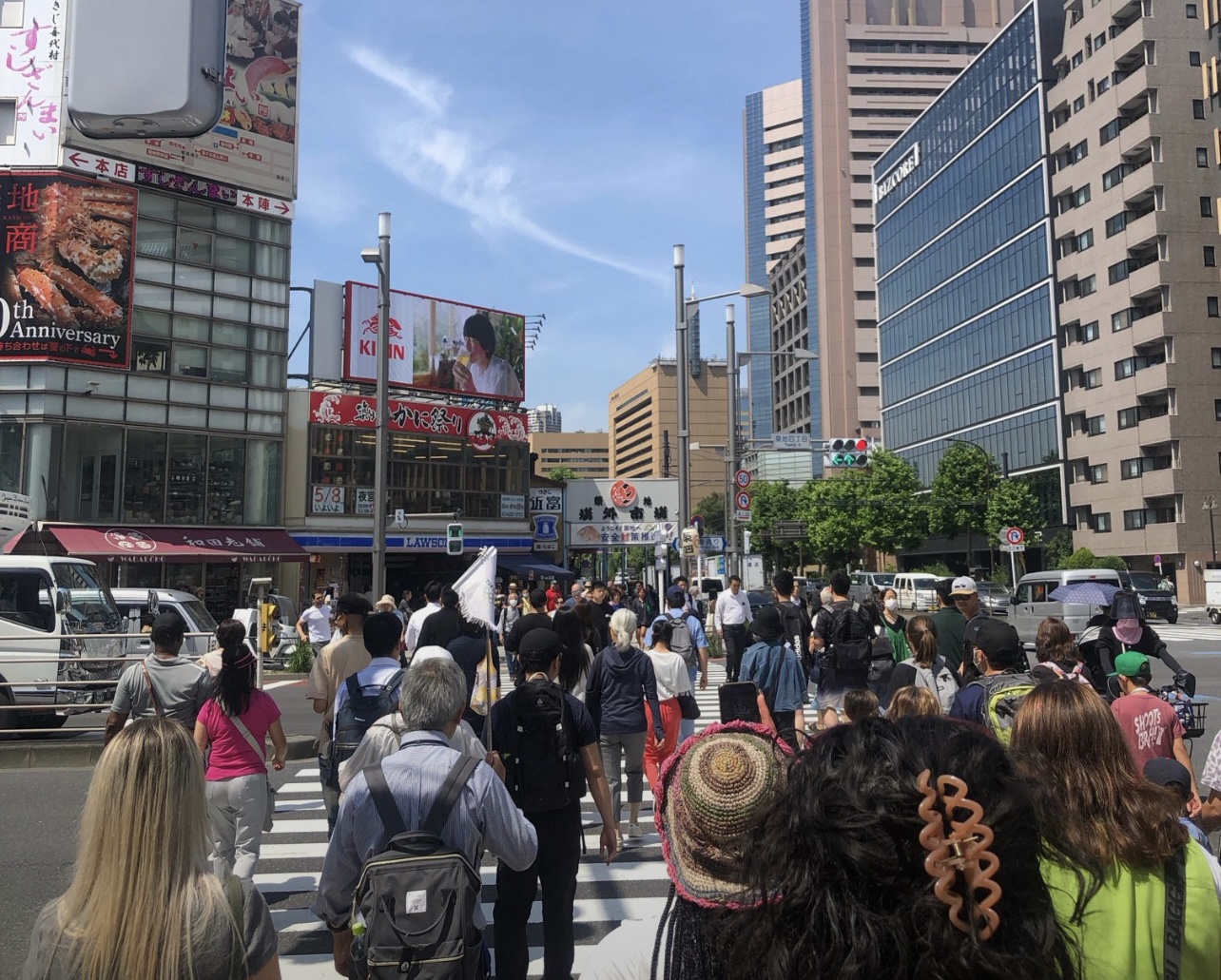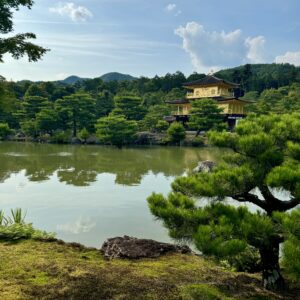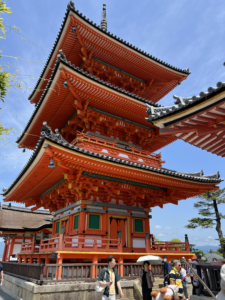
A crowded crosswalk in the heart of Tokyo
When arriving in Japan, one may experience a bit of culture shock adjusting to the country’s customs and norms. Japanese culture is highly focused on being reserved, which is quite different from the United States.
In America, one can expect loudness, uncleanliness, and at times, utter chaos. While Japan can be chaotic, especially considering the huge population and cramped spaces in Tokyo, how its people deal with these circumstances is what differentiates the two groups.
Politeness is an important concept to Japanese people. They are seen as some of the most polite and respectful people in the world, and it can be overwhelming to remember all of the etiquette. However, this is one of the things that many tourists end up enjoying the most about Japan.
Omotenashi means selfless hospitality. Japanese culture is rooted in this phrase. It comes from traditional Japanese tea ceremonies and emphasizes anticipating and fulfilling guests’ needs in advance.
Although reserved, Japanese people are extremely nice. It will, for the most part, be somewhat obvious that you are a foreigner when arriving in Japan, especially since everyone behaves and dresses very similarly. But this is not something that should deter a visitor, as Japan is very used to tourists and welcomes them most of the time. They are quick to answer questions if they can and eager to talk about Japan.
A social norm in Japan is avoiding talking too much or interrupting others. Visitors will find most public spaces almost devoid of human voices. This is the norm in Japan, however in busy Tokyo cities and restaurants, it can get loud at times. If someone is speaking loudly in public, it is expected to receive a few stares.
Keeping your distance is another custom practiced here. On the trains, it can be hard to do this but keeping aware of your surroundings will help you notice if the people around you are uncomfortable and what you might do to fix it. Personal space is also observed in greetings. Bowing is the common way to greet, apologize, say thank you and say goodbye to others, unlike in America where one shakes hands or hugs.
Refraining from eating while walking may be one of the harder customs to adjust to as a first-time traveler, especially when surrounded by so many delicious food stands. At the Tsukiji Outer Market, hundreds of pounds of fresh fish are shipped in every day and served to eat as sushi and sashimi, as well as to be bought in bulk. Candies, fruits, ice creams, and meat skewer stands also line the streets. In an environment like this, it may be difficult to remember the rule of not walking while you eat.
Cleanliness is to be expected in nearly every part of Japan, even the big bustling cities like Tokyo. The subways are quite pristine, unlike American subways, and it is rare to ever notice any trash on the ground. Due to this, trash cans can be hard to find. This ties back into not walking with your food, as most times guests will eat their food and deposit trash at the food location. They might even fish you out of a crowd to collect it in places like Tsukiji fish market!
Something that is highly respected about Japanese people is their willingness to wait, and do expect to wait at many tourist attractions due to the high volumes of people who visit Tokyo. Visitors will often see long lines for restaurants and bathrooms with all people in line being quiet and courteous. Although in America standing in lines is common as well, the general attitude of doing this is met with impatience and frustration.
Even in places like Harajuku where Japanese people will dress outlandishly and over the top, staring is considered disrespectful. You will find that if you make eye contact with a Japanese person, oftentimes they look away first and carry on with what they are doing.
Tokyo is one of the most diverse cities in the world, and while many of these customs will apply, there are times where some might not be necessary. Before coming to a place with standards in place that the citizens follow every day, it is important to know these things beforehand.
Being respectful is the most important thing to keep in mind when visiting Japan, and with this you might even make a few friends along the way.







